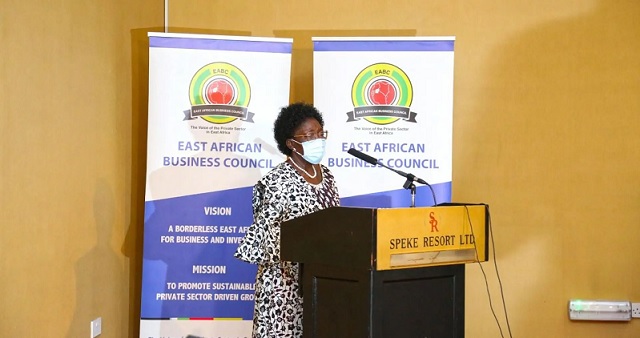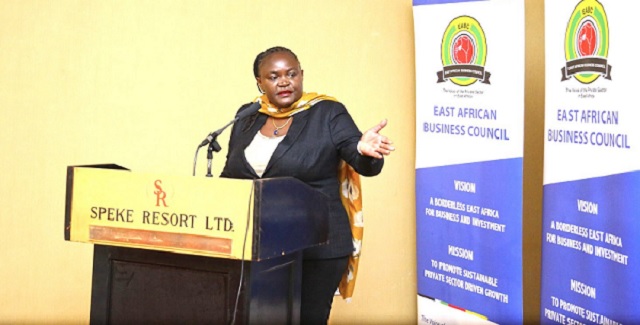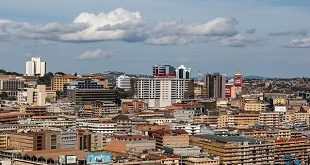
Kampala, Uganda | THE INDEPENDENT | East African Community leaders and the business community are excited at the move by Kenyan President William Ruto to ease trade restriction between Kenya and Uganda, saying it gives new hope for deeper integration.
Since his inauguration in September last year, Ruto has reversed several of his predecessor’s policies including lifting restrictions on imports from Uganda mainly dairy, poultry and sugar products.
Though President Kenyatta largely maintained silence as the products were being confiscated, he was seen as responding to concerns by farmers’ and political leaders there, that Uganda’s low-priced products were killing the Kenyan agricultural sector.
President Ruto has severally said no product from Uganda should be barred because EAC was all about free trade.
Uganda has also recently attempted to stop importation of rice from Tanzania to protect local producers, while previously Tanzania had rejected sugar and maize from Uganda saying the country could produce enough for its own market.
John Bosco Kalisa, the Chief Executive East African Business Community says the resolution of these disputes should lead to the removal of more non-tariff barriers to trade.
First Deputy Prime Minister and Minister for EAC Affairs, Rebecca Kadaga said a lot still had to be done, and condemned the practice of closing borders as hurting the business community and the innocent citizens.
Speaking on Friday before a retreat of the EABC Board on the regional integration agenda in Kampala, Kadaga regretted that the traders at the Uganda-Rwanda border had got hope after Kigali announced the reopening of the border, only for its dispute with DR Congo to escalate.
This has meant that Ugandan exporting to DRC through Rwanda have lost business.
Kadaga however says she is happy with Ruto’s decisions though some Kenyan politicians are still opposing them.
Kalisa and the EABC Chairperson Angelina Ngalula appealed to Kadaga to press the EAC to finalise harmonisation of product standards because countries were using the issue of standards to protect their own interests, which they said was wrong.

Talk of the harmonization of standards has been on since as early as 2012 as part of the integration agenda but has not been materialized.
It would ensure that apart from the EAC standards that are aimed at raising the standards for the products from the regional for international trade, the countries’ national standards would be recognized across borders, so as to promote intra-regional trade
Giving an example of Kenya’s ban on some Ugandan products, Kalisa said harmonization of standards would be an answer to the challenge where countries use standards to protect their own markets, which, he says, is wrong.
On protection of national interests, Kadaga said there is a wider impact that has even made the EAC review the pillars of integration, with the final one, the Political Federation being the main victim.
The EAC has now decided to go slow on a political federation, the fourth and final pillar of integration, according to the EAC Treaty, after some partner states showed reluctance towards it.
This would see all the countries in the region (currently seven) get together for form one political entity or country with one leader.
The Political Federation is the ultimate goal of the EAC Regional Integration, after the Customs Union, Common Market and Monetary Union, according to Article 5(2) of the Treaty for the Establishment of the EAC.
Kadaga now says most countries have not shown willingness to shed their sovereignty for the sake of uniting into one country, hence the decision to opt for a confederation instead.
Unlike a federation, under a political confederation the countries agree on some aspects that can be put under the control or management of an apex authority, which allows the countries to maintain control over some of their own affairs.
She explains that this has not replaced the original goal but will just be another step to a political federation.
Kadaga urged the EABC to support women cross-border traders and SMEs by raising their awareness about trade procedures and opportunities in the EAC bloc.
Apart from unfavourable trade policies, small traders are not aware even of the laws that are meant to protect them, for example, the traders smuggle goods worth less than 2000 dollars (seven million shillings) yet by law they are not supposed to be taxes.
She also condemned the pioneer member-countries of EAC for not leading the way in eliminating trade barriers, giving the example of Tanzania that insists on a passport instead of a national identity card.
Kadaga also called for the operationalisation of the Trade Remedies Committee, wondering why the EAC Secretary General Peter Mathuki has remained silent about it despite nudging from the ministers and the business community.
The Trade Remedies Committee is aimed at settling trade disputes especially of the cross-border nature or affecting parties from different countries in the EAC.
Currently, there is not an operational body responsible for that and disputes are taken to the main judicial system especially the East African Court of Justice, which can be a lengthy and expensive process.
Kalisa, the EABC CEO, says the current framework cannot help the business community because they cannot be arbitrators as the TDC was intended to be.
At the event, Kadaga also officially inaugurated the newly appointed EABC Goodwill Ambassadors from Uganda namely; Jim Mwine Kabeho, Dr. Merian Sebunya, Olive Kigongo and Charles Kabera.
@RebeccaKadagaUG, First Deputy Prime Minister and Minister for East African Community Affairs of the Government of the Republic of Uganda who officially inaugurated EABC Goodwill Ambassadors. pic.twitter.com/jj66w3jtL1
— East African Business Council (@EABCjumuiya) February 3, 2023
******
URN
 The Independent Uganda: You get the Truth we Pay the Price
The Independent Uganda: You get the Truth we Pay the Price



